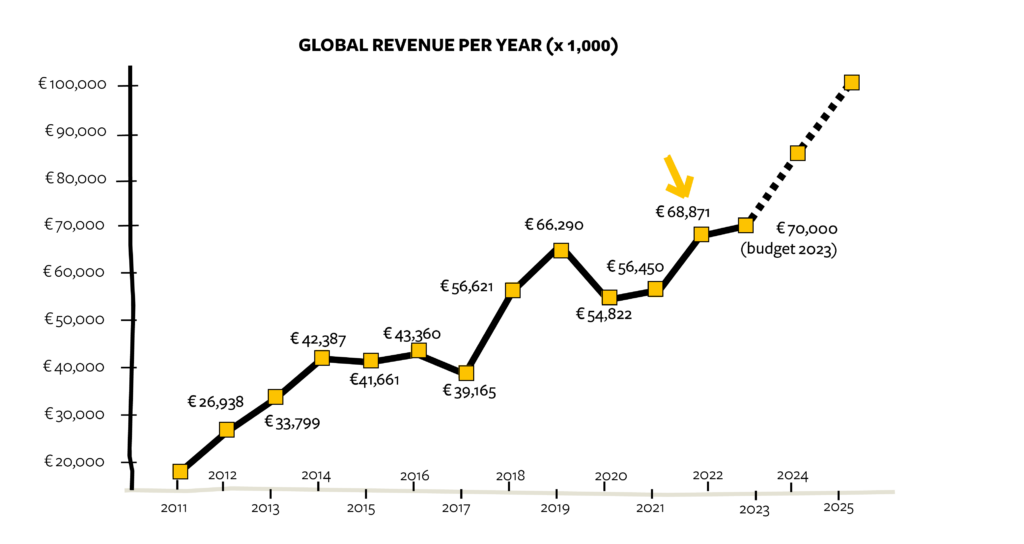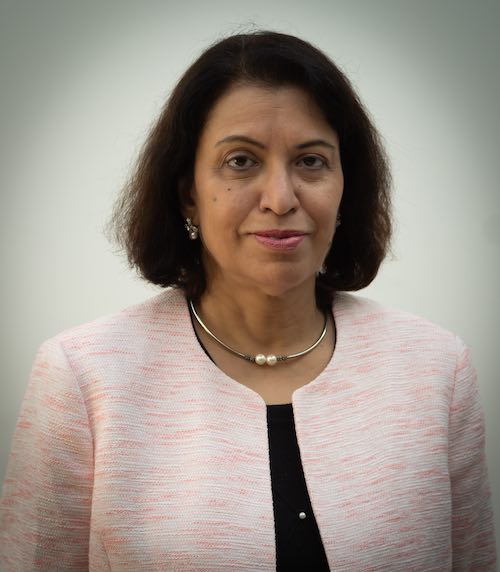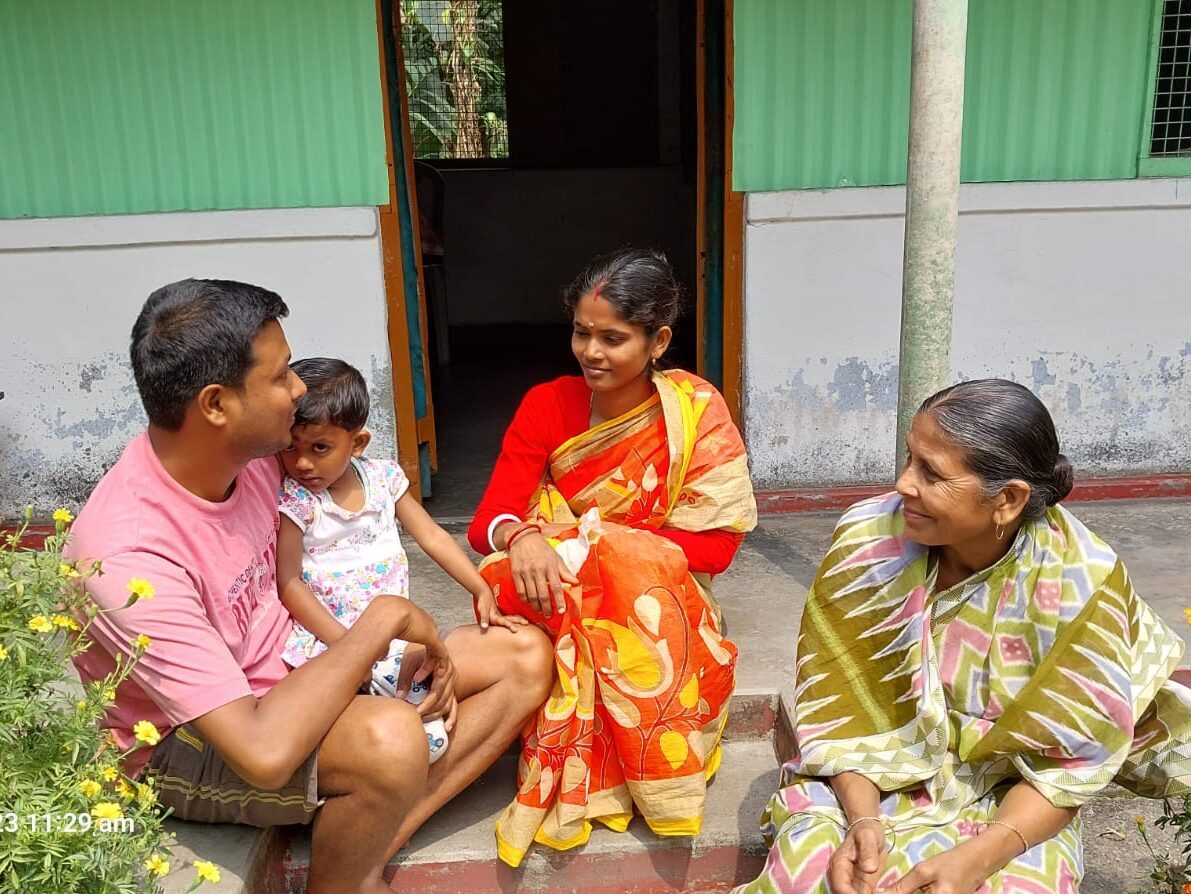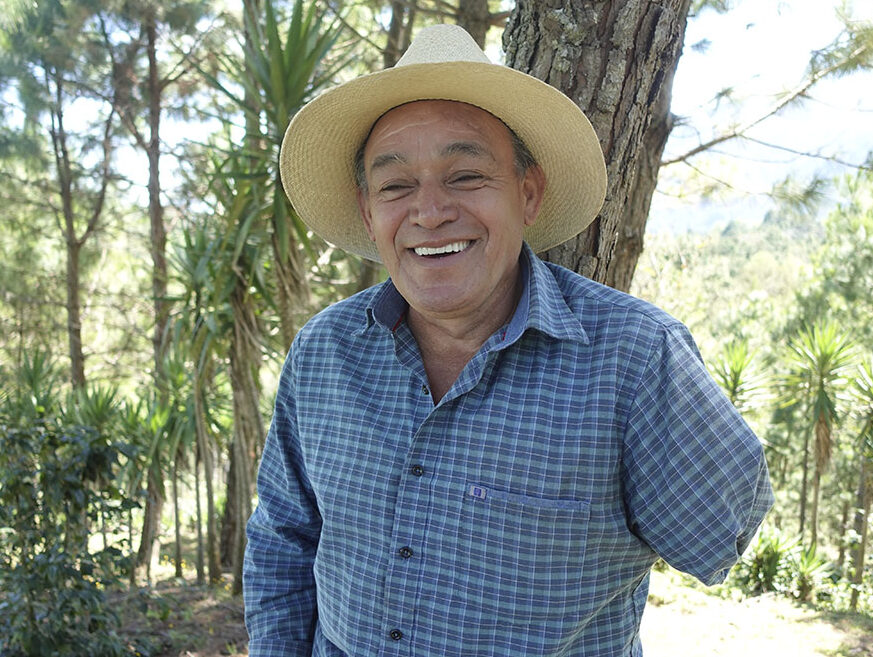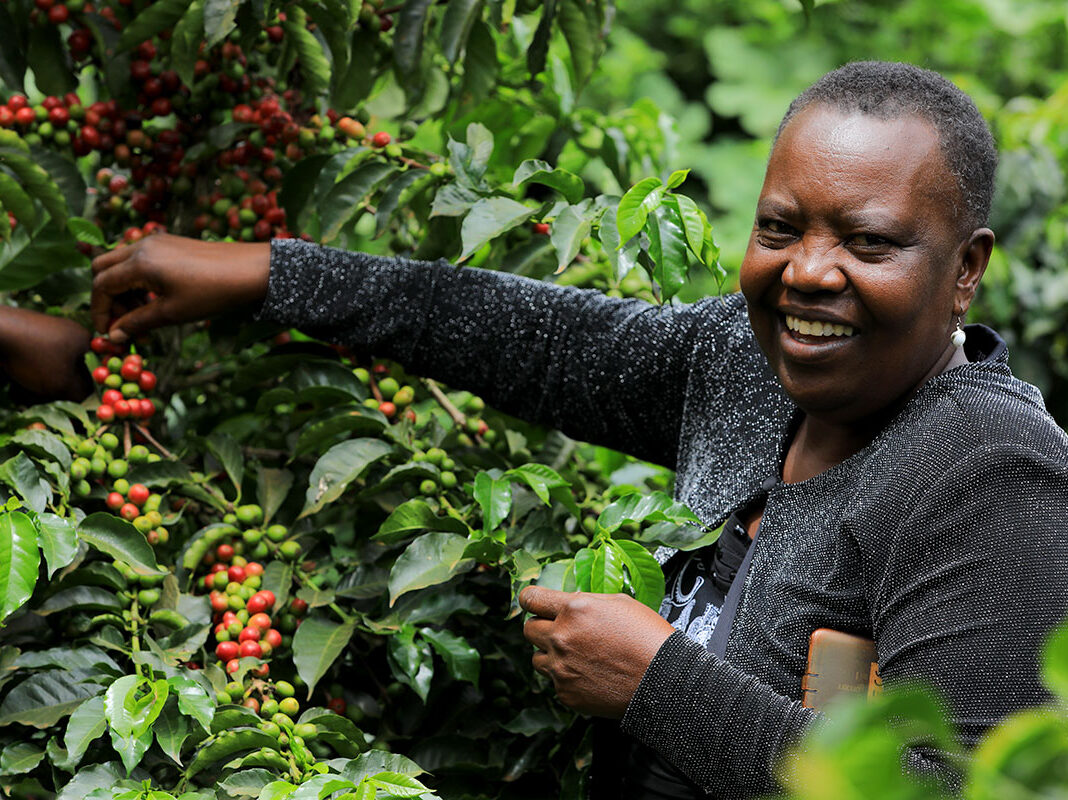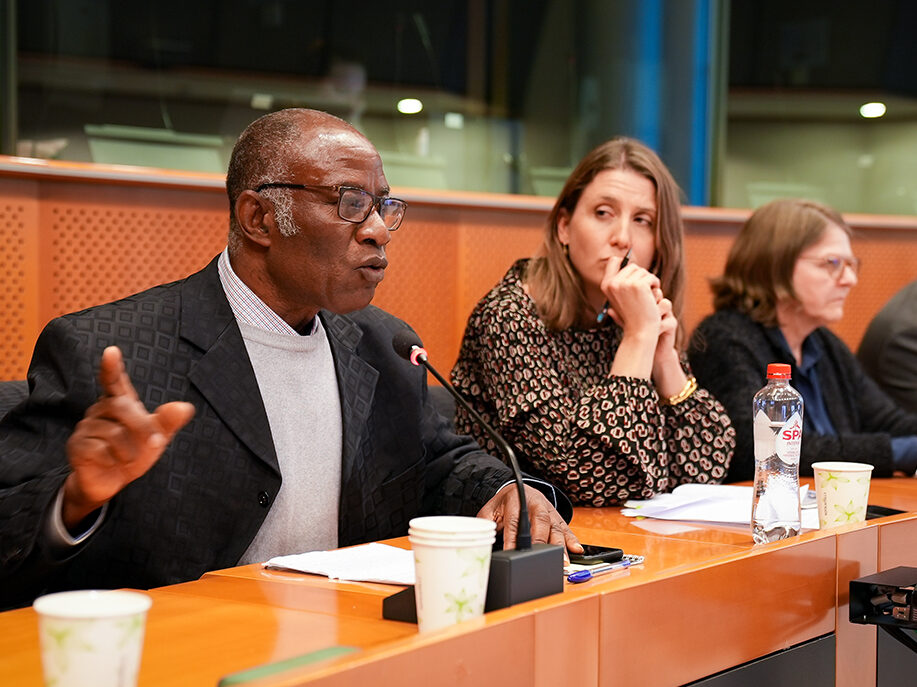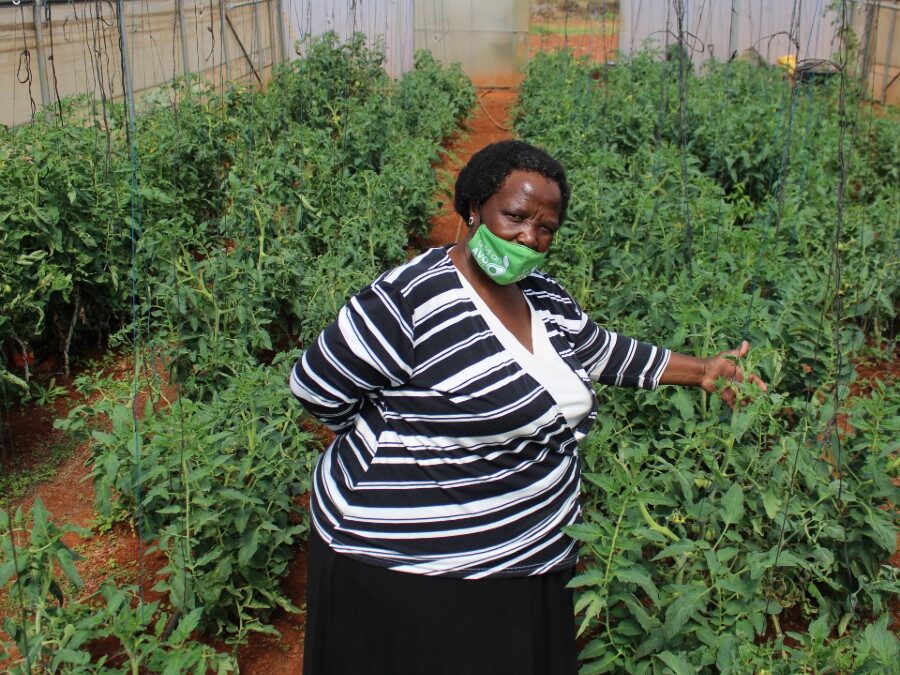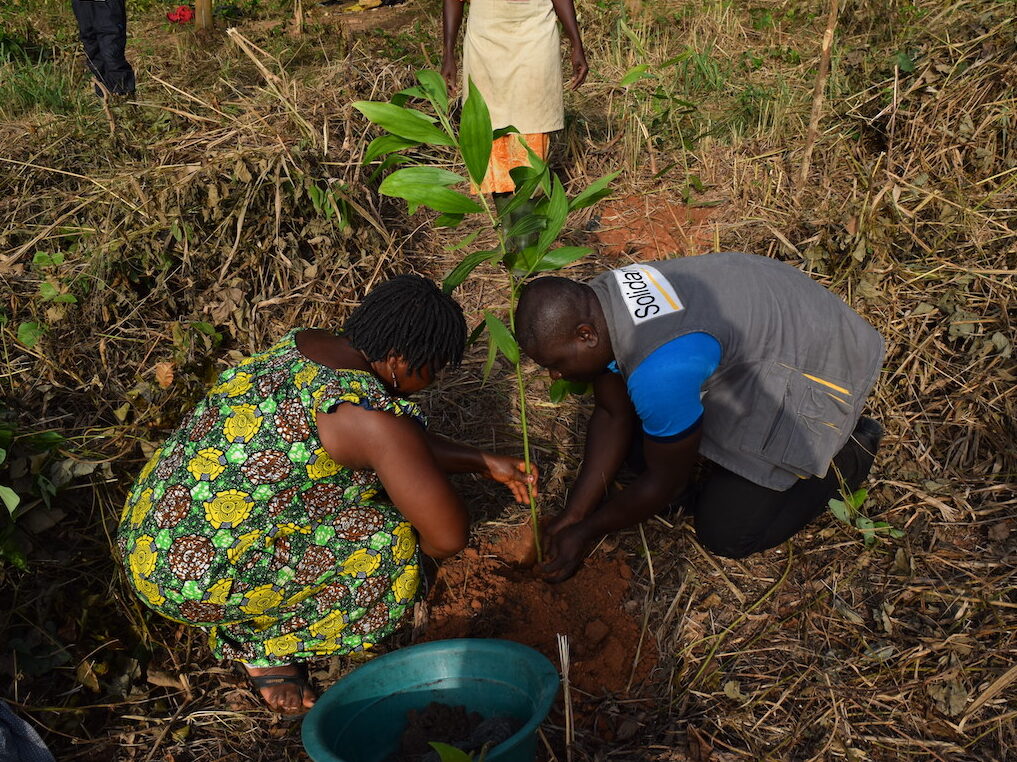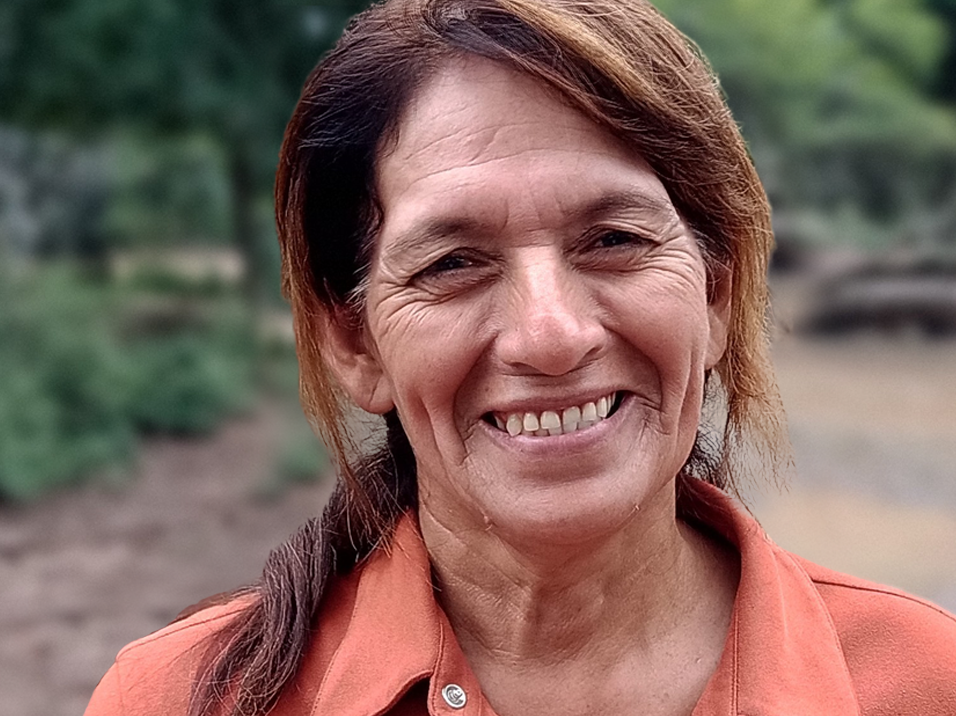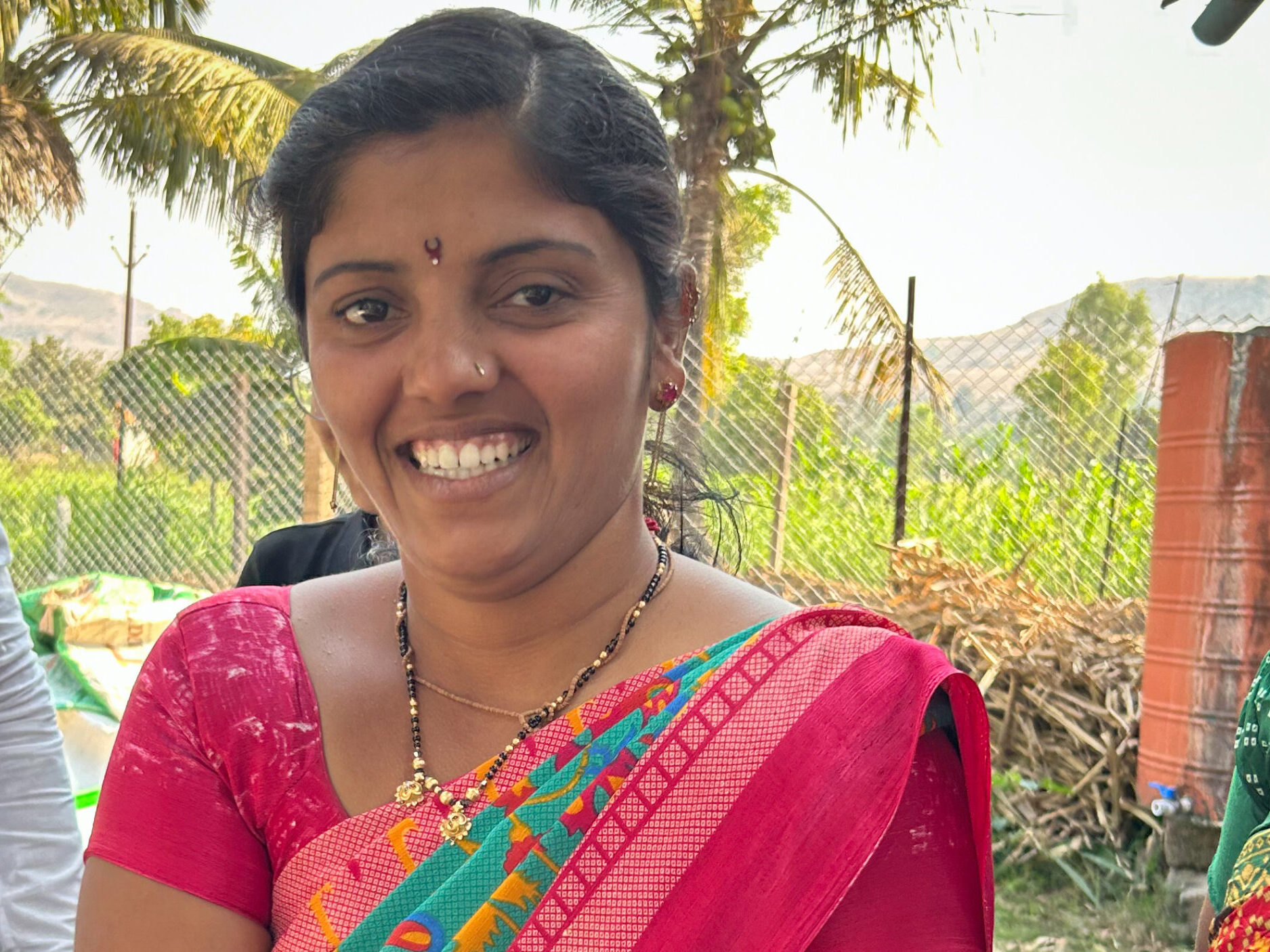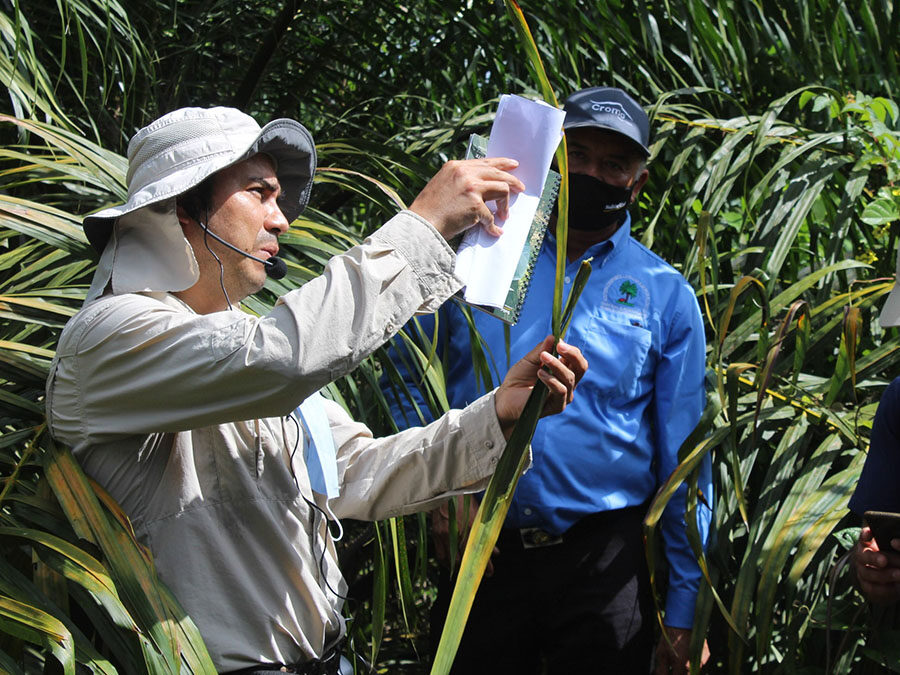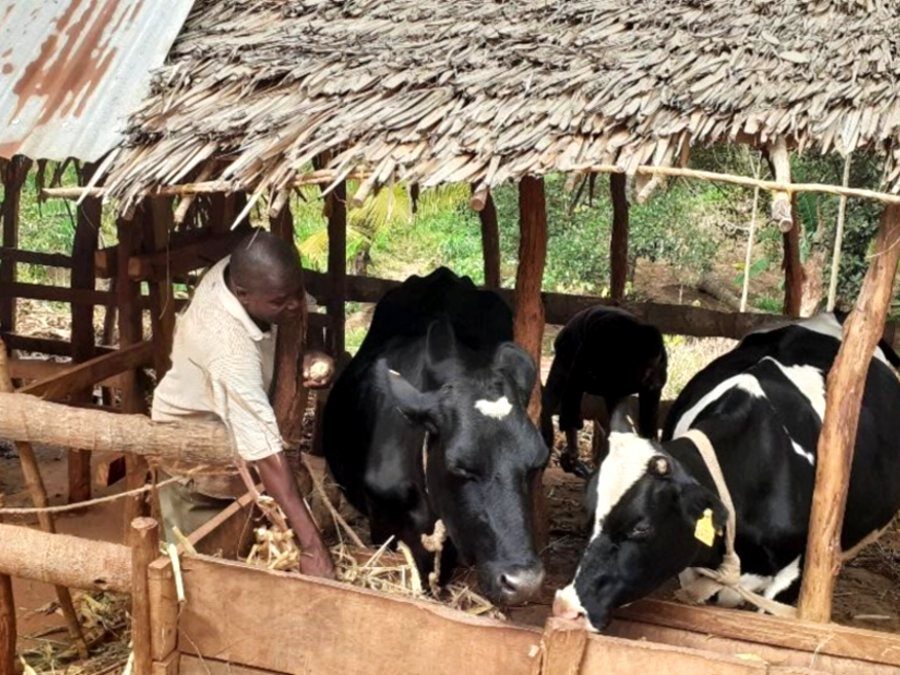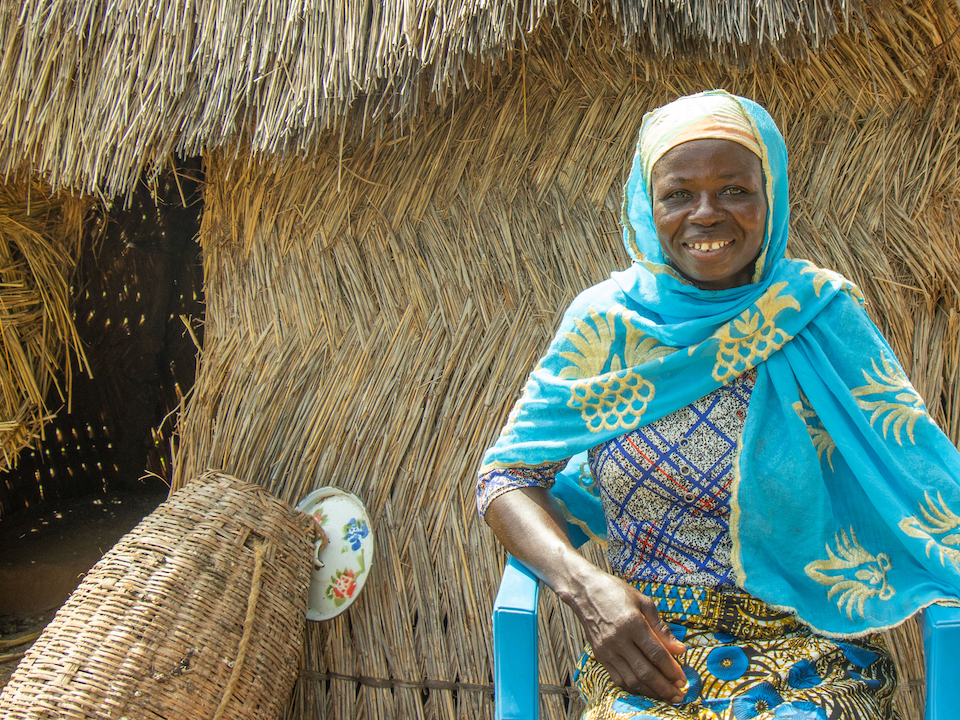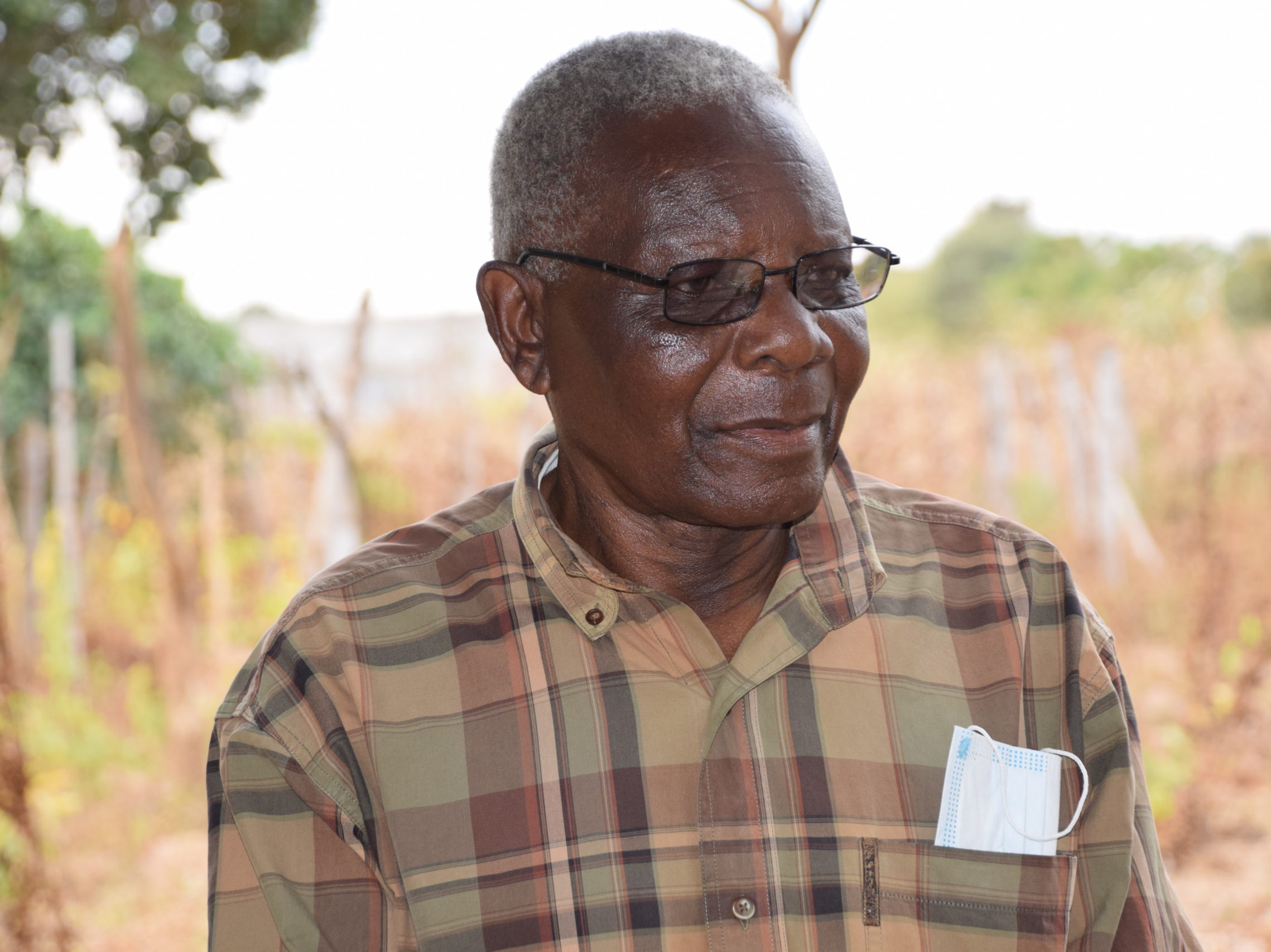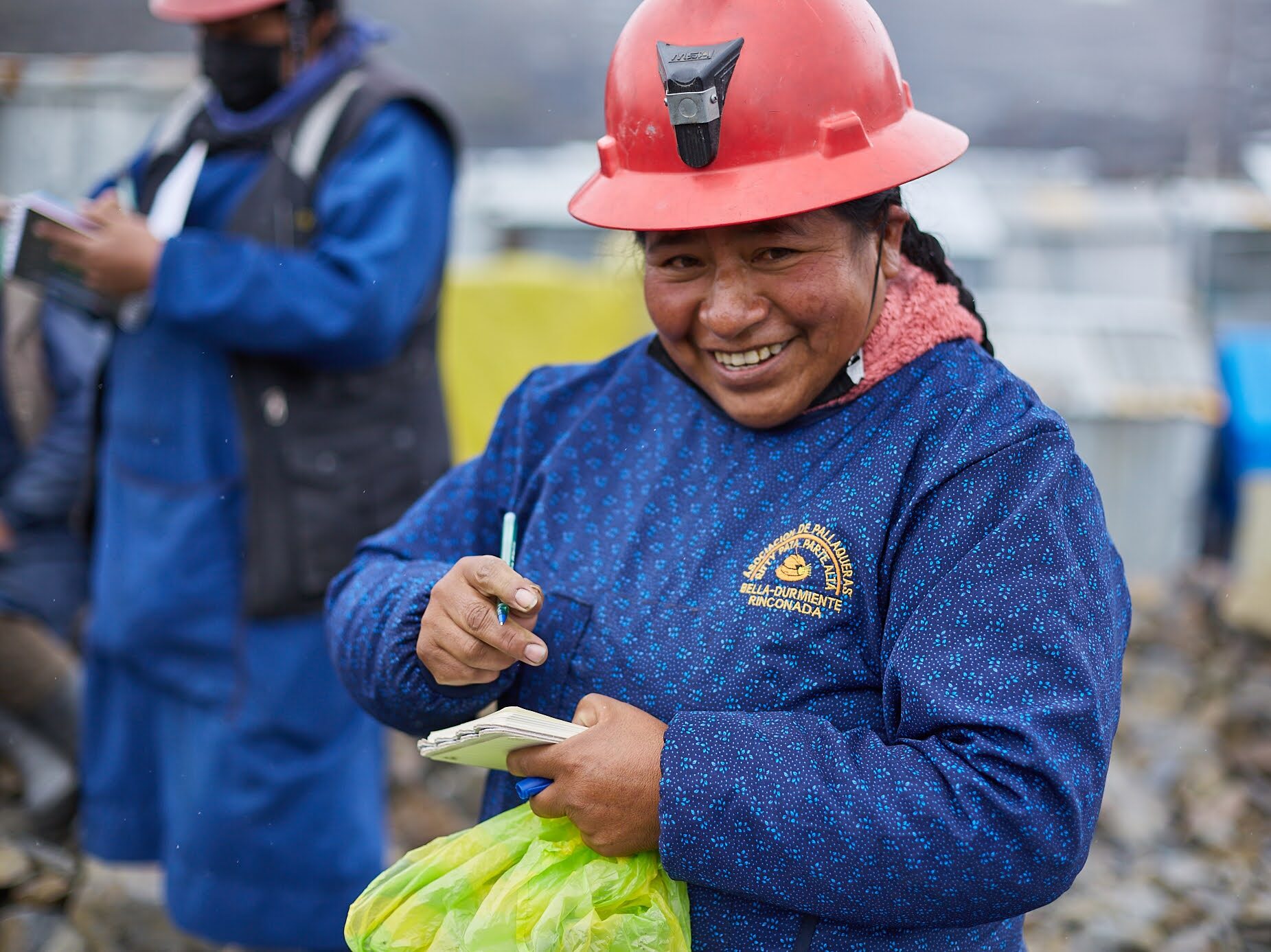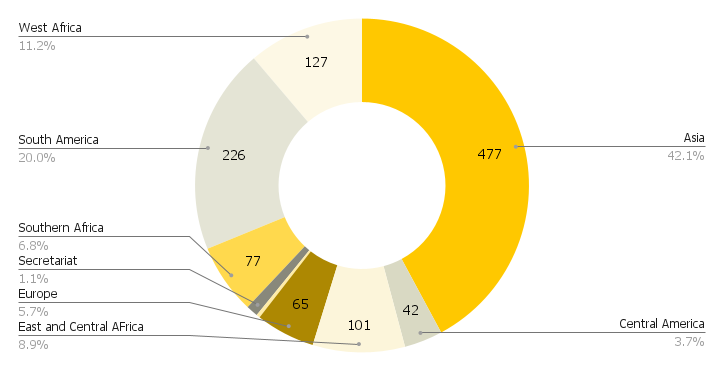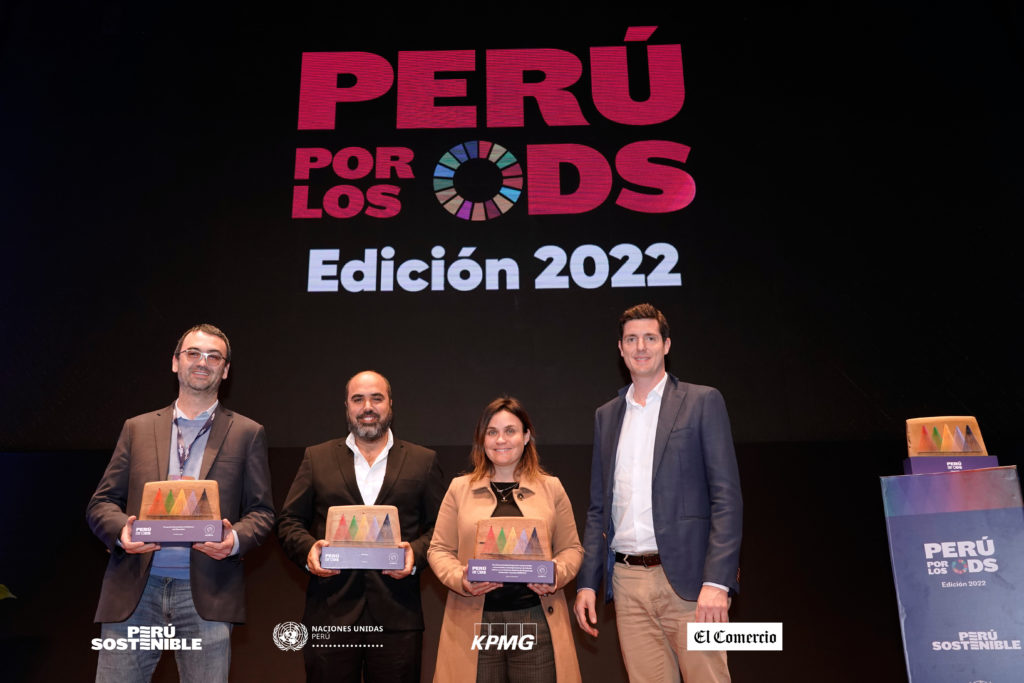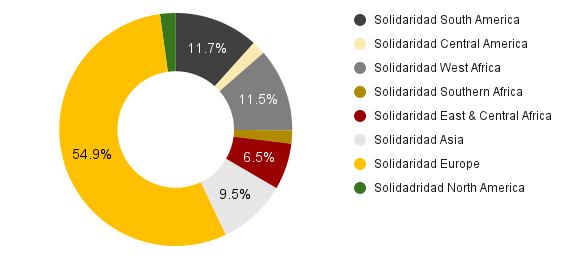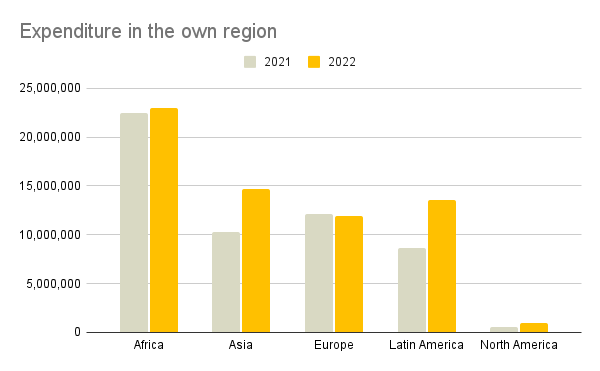Establishing a new norm
The year 2022 was about setting a new norm and many firsts! Solidaridad’s first regenerative agriculture certification paved the path for securing the health of the land in an economically viable way for the farmers in 5 commodities covering the four Asian countries. Solidaridad’s in-house developed QR code-based farm-to-cup traceability solution by the name of Soli-Trace was introduced to Indian tea consumers. And for the first time, at the initiative of Solidaridad, five major Asian palm oil consuming countries came together to form the Asian Palm Oil Alliance to work on sustainable palm oil consumption.
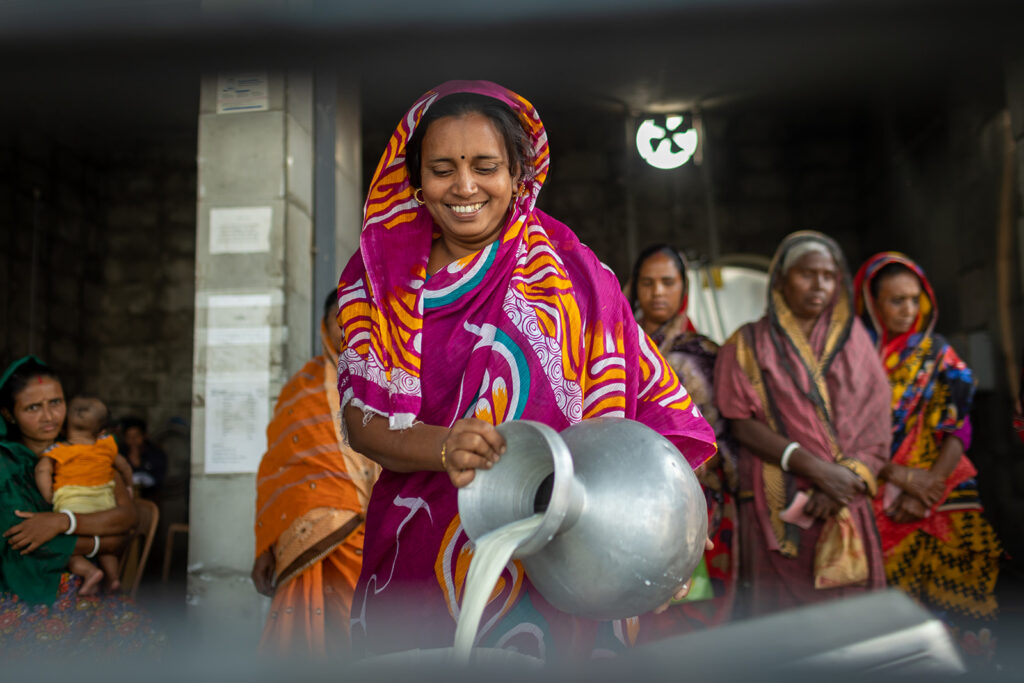
Integrated models
In 2022 we successfully lobbied for 69,933 ha of Guatemalan protected areas through RSPO remediation and compensation. In Nicaragua 3,348 producers diversified income through coffee carbon markets and an integrated cocoa-livestock model. In Honduras we implemented a traceability model for 200 coffee farmers and advocated to address fair value distribution through the National Coffee Policy.
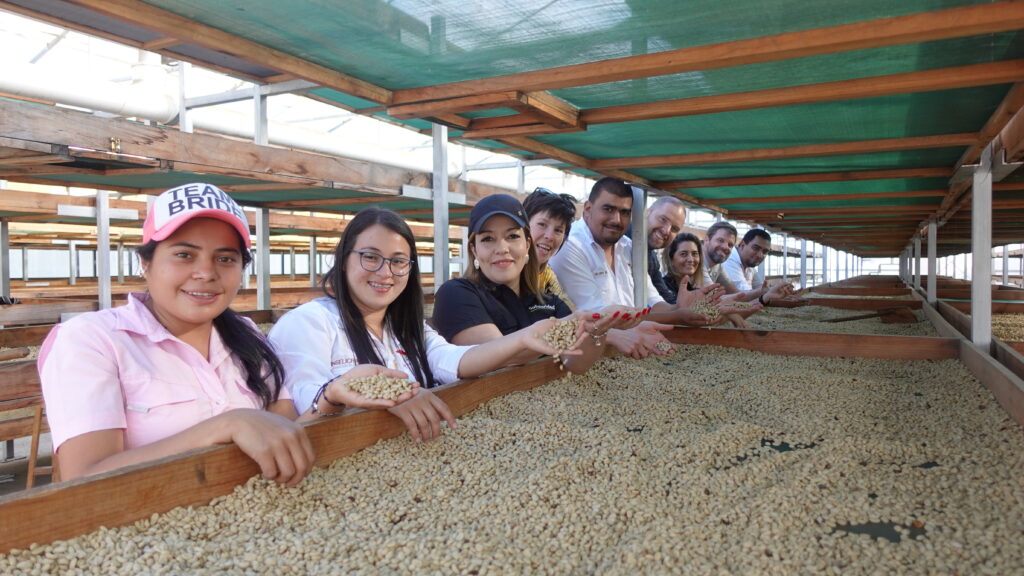
Re-calibrating the resilience of smallholders
To catalyze sustainable production systems and reimagine value-addition opportunities, Solidaridad East and Central Africa worked closely with demand- and supply-side actors raising awareness and pushing for inclusive policies, good practices, fair value distribution, decent work, gender and social inclusion, and market access, among others.
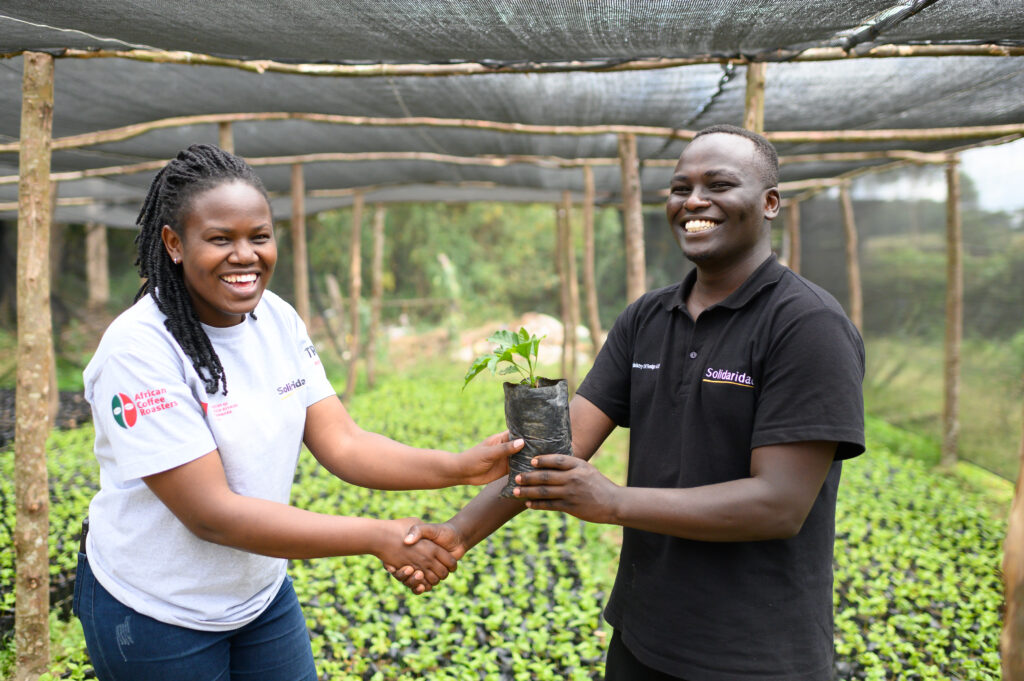
Working towards systemic change
Europe is highly dependent on trade for its daily needs. Europe is supplied by billions of small farmers, miners and workers in agricultural, industrial and services sectors elsewhere. European companies and governments show little interest in defending the rights of stakeholders outside Europe. Solidaridad tries to make small farmers’ and workers’ voices from across the globe heard in Europe.
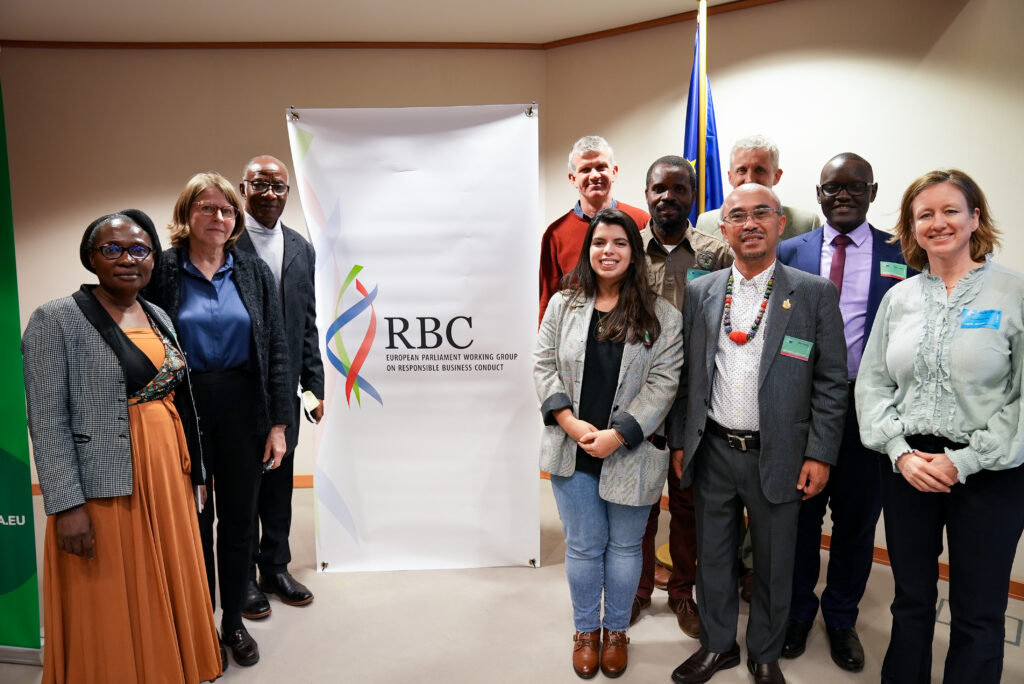
New grants, more impact
Given policy shifts on climate action and sustainability, Solidaridad was recognized for its cutting-edge solutions on climate, equity and decent work. Amazonia Connect, Solidaridad’s largest grant outside the European Union, was approved by USAID. Various tech companies engaged with us to address transparency, traceability and impact in the minerals space
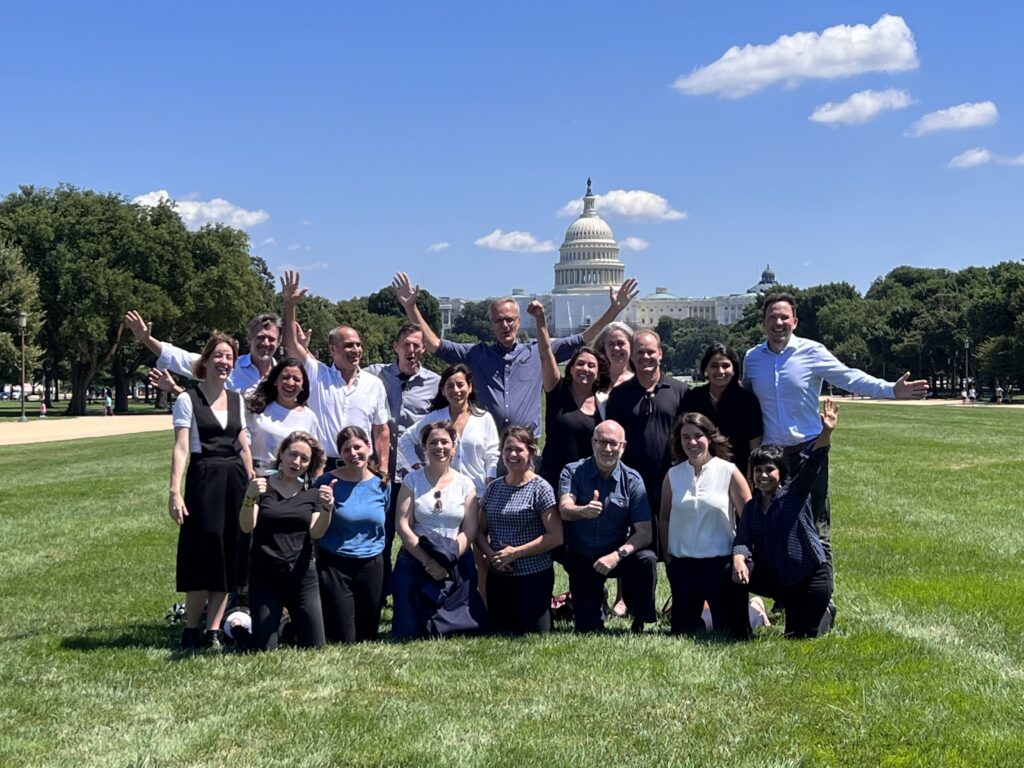
Carbon credits for farmers
Carbon credits are becoming an important incentive to introduce smallholders to low-carbon agriculture. It increases farmers’ productivity and protects native forests. In 2022, we secured more than 6M EUR to scale access to the Acorn Platform, through which 80% of the carbon credits’ value returns to the farmer: an interesting proposition within voluntary markets.
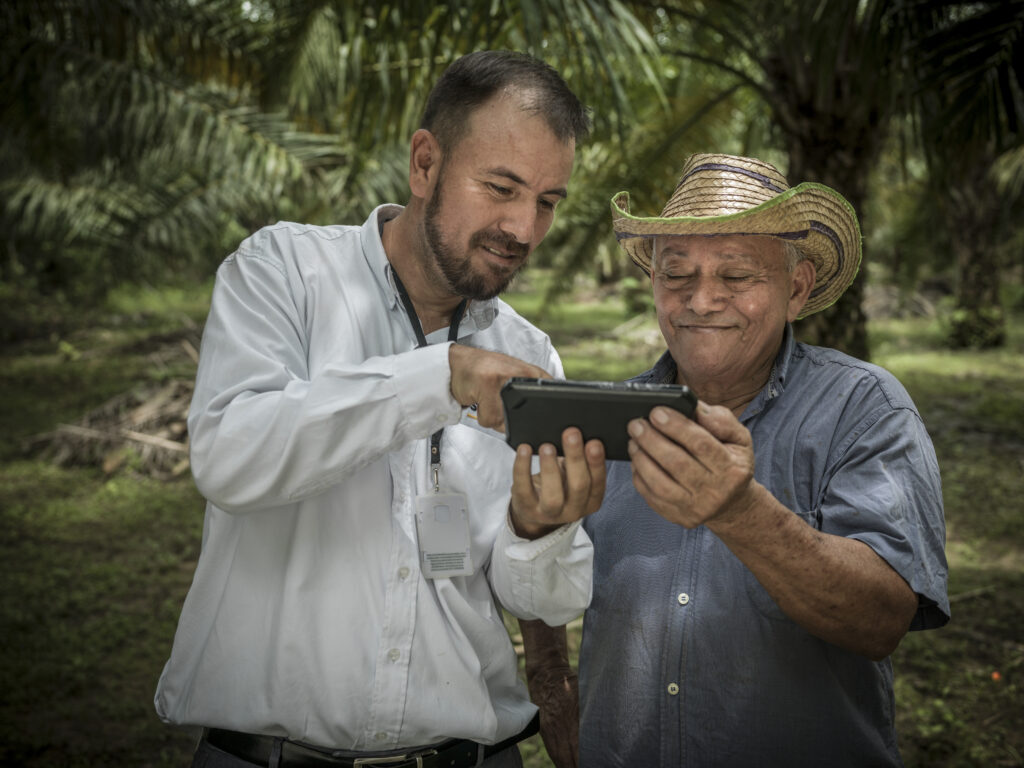
Digital Solutions
The Southern Africa team managed to enhance dialogues on policy issues affecting the cotton, tea and Africa foods supply chains and initiate the implementation of a good practices standard in Mozambique. Kitovu, our digital technology hub, continues to design, test and deploy digital solutions across sub-Saharan Africa.
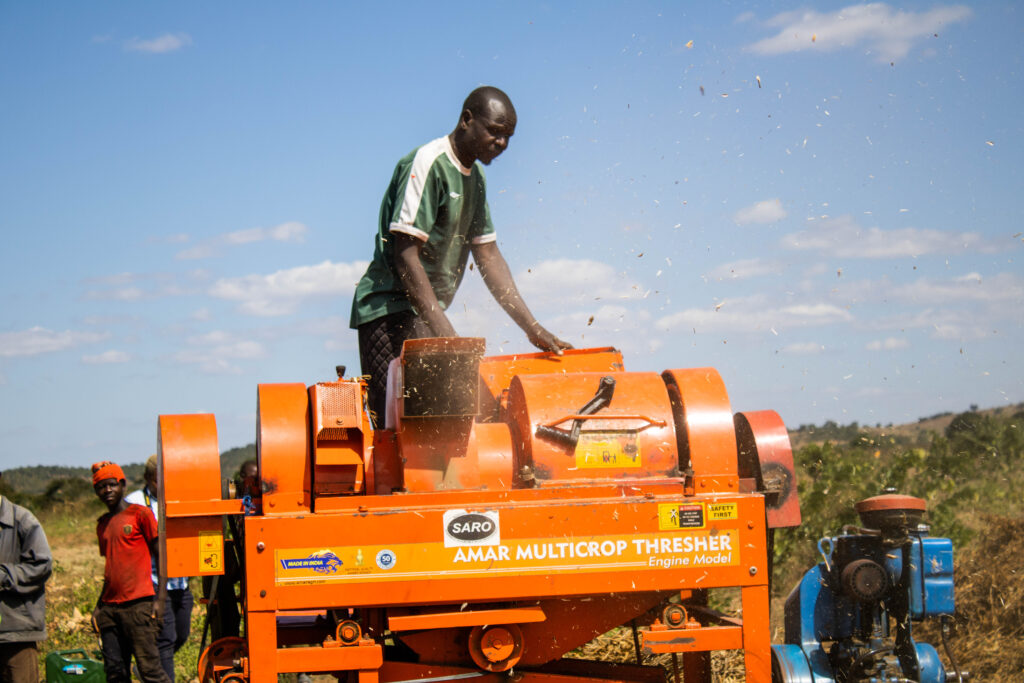
Farmer-friendly policies
We leveraged strategic partnerships and digital tools to increase supply chain transparency and market access for smallholders. We successfully lobbied and advocated for sustainable practices and policies that improve the livelihood of farmers and gold producers. Our advocacy work led to the passing of two land bills in Sierra Leone and the adoption of a new pricing arrangement in Ghana.
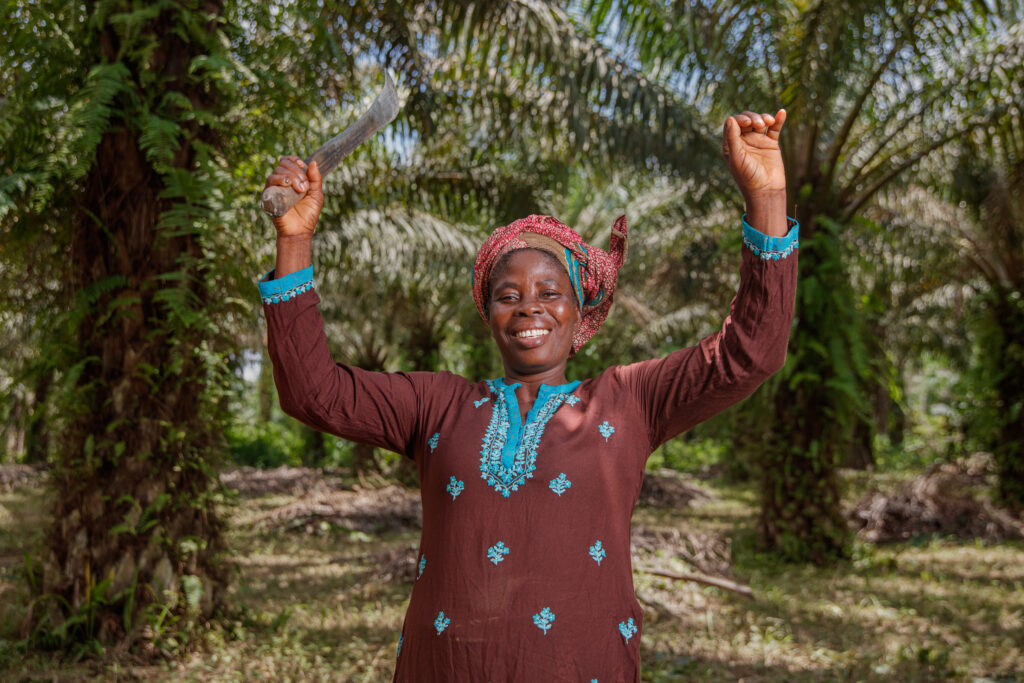
Executive Summary

2022 at a glance
Farmers first
In everything we do, we put farmers at the center. In the end, our interventions need to have a direct positive effect on their livelihoods, contributing to thriving communities. That’s why we are so proud that nearly a million small-scale farmers have seen a concrete increase in their income as a result of our work, in addition to being able to improve the working conditions for one million people working in agricultural-related supply chains and mining.
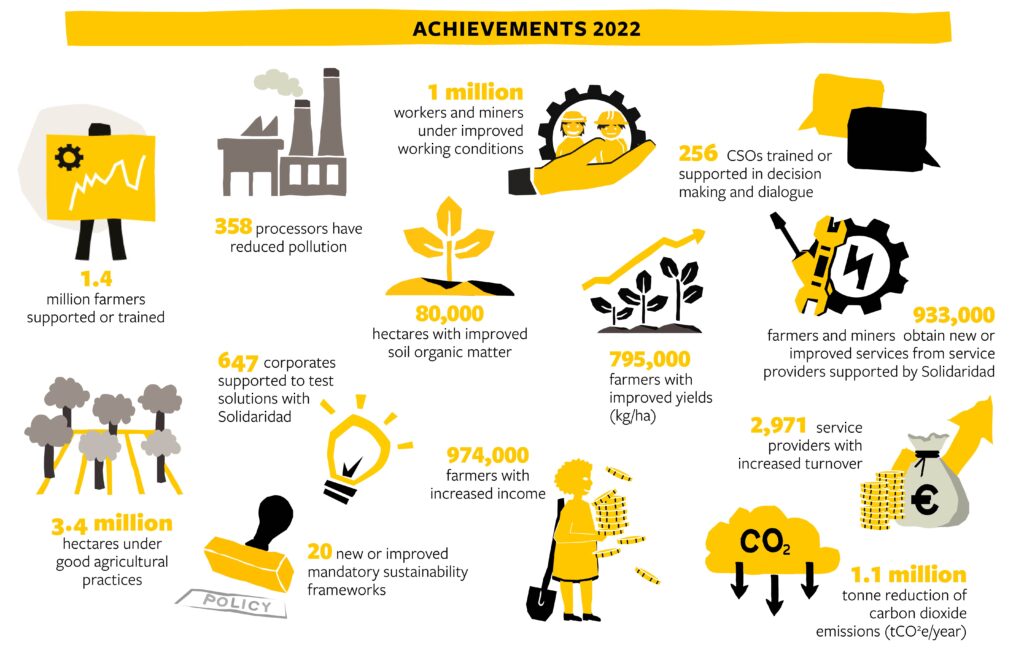
Change that Matters Stories
Organization & Governance
HR development and learning
Focus on inclusivity and integrity
The Solidaridad Network is supported by a secretariat in the Netherlands. The secretariat works on synergy and alignment within the network on HR, Integrity, Learning, Communications, Finance, and PMEL. Next to our shared strategy, the policies and collaboration in these areas bind the network together and make it strong.
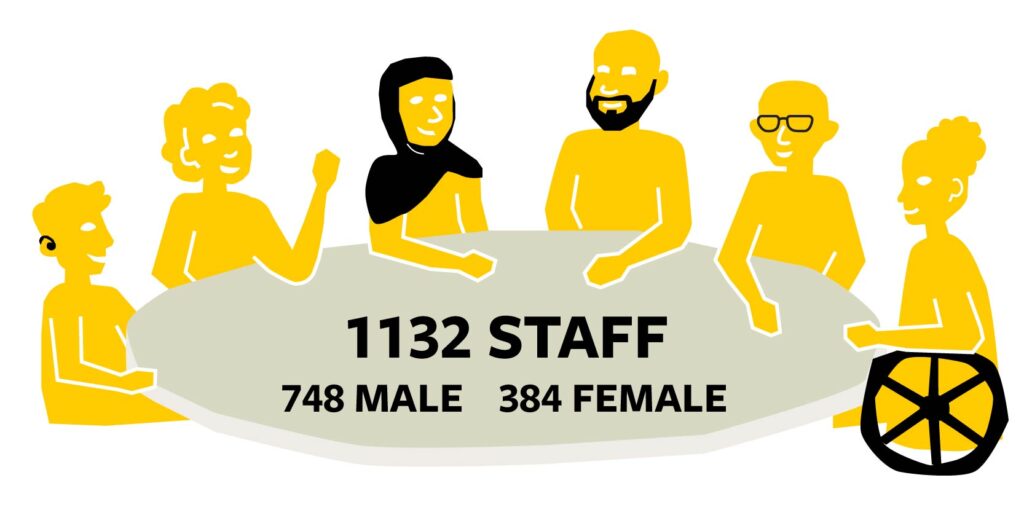
Finance
A record revenue
The overall revenue of Solidaridad in 2022 was 68.9 million Euros, against a total direct expenditure of 64 million (excluding money transfers from one region to another). Thanks to newly secured funding, the revenue was Euro 13.9 million higher than the secured budget of Euro 55 million.
N.B: all figures are pre-auditing.
